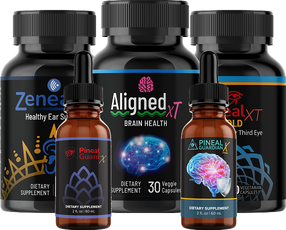What Happens to Your Body When You Drink Milk Every Day

"Got milk?" The iconic slogan echoed through our childhoods, but as adults navigating the maze of health advice, we're left wondering: Should we still reach for that glass of white goodness every day?
Milk has been a dietary staple for thousands of years, especially in Western countries where cow’s milk is the norm.

But in today’s wellness world, milk consumption is a hotly debated topic. Is it the nourishing elixir we believe to be, or could it be behind some health issues?
Let's dive into what happens to your body when you drink milk daily.
And before we start, I’d love to know…
Do you drink milk regularly? Have you noticed any changes in your health or weight? Reply to me to share your experiences.
Benefits of Drinking Milk Daily
Strong Bones, Strong You
Milk is synonymous with strong bones for a reason. It’s packed with calcium, essential for maintaining robust bones and teeth. Many milk products are fortified with vitamin D, which helps your body absorb calcium more effectively.
Together, these nutrients help prevent osteoporosis and fractures, giving you a solid foundation for overall health.
Muscle Magic
Whether you're a fitness enthusiast or just trying to stay active, milk’s high-quality protein can be a real game-changer. It contains all nine essential amino acids your body needs for muscle growth and repair.
So if you’re on a weight loss journey, preserving lean muscle mass with a post-workout glass of milk can keep your metabolism humming.
Hydration Hero
Milk is about 87% water, making it an excellent choice for staying hydrated. But beyond hydration, it’s packed with essential nutrients like vitamin B12, potassium, and phosphorus. It’s a nutrient-dense beverage that supports your health without packing on the calories.
Potential Downsides of Drinking Milk Daily
Lactose Intolerance Woes
For some folks, milk can be a digestive disaster. If you’re lactose intolerant, you might experience bloating, gas, and diarrhea. Not fun, right? Luckily, there are lactose-free options and a variety of plant-based alternatives like almond or soy milk to keep your digestive system happy.
Acne and Inflammation Worries
There’s some buzz about milk causing acne, especially skim milk. Hormones in milk, like IGF-1, might ramp up sebum production, leading to those dreaded breakouts.
While the evidence isn’t set in stone, it’s something to consider if you’re prone to acne. Similarly, while milk isn’t generally inflammatory for most people, those with lactose intolerance or a milk allergy might find it triggers inflammation.
Hormones and Antibiotics
Concerns about hormones and antibiotics in conventional milk are valid. To avoid these, go for organic milk, produced without synthetic hormones or antibiotics.
Milk and Weight Loss: Friend or Foe?
Milk can be both an ally and a foe in the battle of the bulge. Here’s how to make it work for you:
Protein Power: Milk’s protein helps keep you feeling full longer, which can curb your overall calorie intake. This is a big plus if you’re trying to lose weight.
Caloric Content: Be mindful of the type of milk you’re drinking. Whole milk is higher in calories and saturated fats. Skim or low-fat milk, on the other hand, is lower in both, making them better options for weight management.
Avoid Added Sugars: Watch out for flavored milk, which often come with added sugars that can derail your weight loss efforts.

Incorporating milk into a balanced diet—think smoothies or a protein-rich breakfast—can support your weight loss goals while ensuring you get essential nutrients.
Real-Life Tips for Milk Lovers
Track Your Calories: Monitor your milk consumption and how it relates to your daily calorie goals.
Choose Wisely: Opt for lower-calorie options like skim or low-fat milk, or unsweetened plant-based alternatives.
Balance is Key: Pair milk with high-fiber and high-protein foods to boost satiety and support weight loss.
To Milk or Not to Milk?
Milk can be a healthy part of your diet, offering numerous benefits, especially for bone health and muscle maintenance. However, individual tolerance and health conditions must be considered. If you have specific concerns about milk and your diet, chatting with a nutritionist or dietitian can provide personalized guidance.




